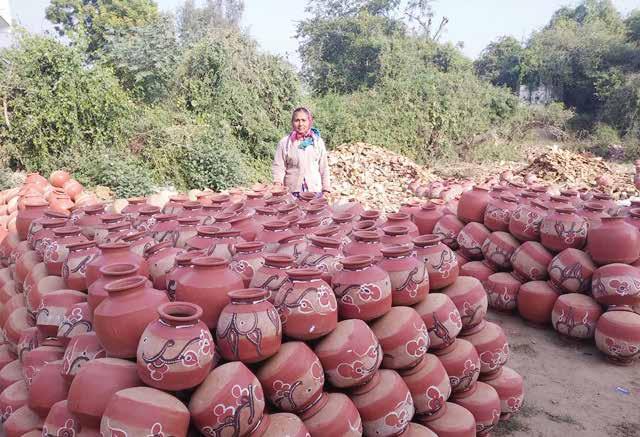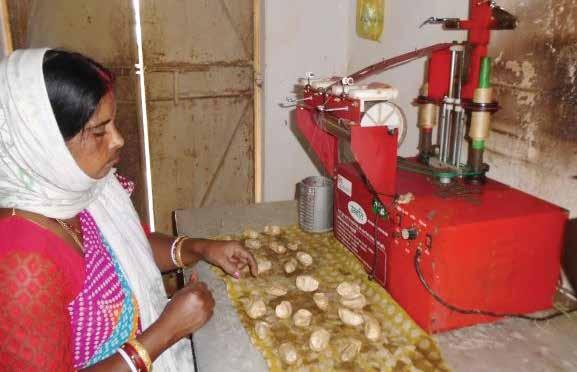8
Study the Feasibility and Potential of Solar Applications in Micro, Small and Medium Enterprises in Rural India
98% of total employment generated by MSMEs. Therefore, the MSMEs are rightly called the ‘Engines of Growth’. Recognizing this, the successive governments have made efforts to formalize the sector which was largely unorganized, through policies, programmes, and schemes, for addressing the specific challenges faced by the sector from access to finance to technology upgradation and employment generation. Also, several government institutions, such as Khadi and Village Industries Commission (KVIC), the Coir Board, National Small Industries Corporation, National Institute for Micro, Small and Medium Enterprises, and Mahatma Gandhi Institute for Rural Industrialization, were constituted for facilitating the development of this sector. These institutions work on a range of issues in the MSME sector and devise schemes for elevating their respective sectors’ development. It was also acknowledged that upgrading to modern technology is an essential pre-requisite for improving the quality and productivity of MSMEs and, thus, was prioritized as a key objective of these institutions’ agendas. Consequently, various measures and research initiatives were introduced in this regard. Efforts were also made for the use of electricity in the micro-enterprises sectors towards mechanizing the production process to reduce the drudgery of the people involved in manufacturing, increase productivity, and enhance the general competitiveness of the sector. However, despite achieving almost universal electrification, gaps still exist in the quality and reliability of power supply in some parts of the country, along with practical difficulties in obtaining commercial electricity connection, especially by household-based enterprises (Smart Power India 2019). These factors can restrict the efficiency of the production process. As a result, many of these units rely on fossil fuels – mainly diesel – to meet their power requirements, adding both to costs and emissions due to burning of fossil fuels. This also reduces competitiveness of micro/ home-based enterprises.
Thus, there is a need of a reliable solution for meeting the power requirements of these units, which in addition to providing reliable, affordable, and quality electricity supply should also be less polluting. With the Government of India’s focus on shifting to clean energy sources and energyefficient production mechanisms, renewable energy finds a favourable position in transforming the energy choices of the MSME sector. Within renewables, solar photovoltaic (PV) technology is an apt solution, which can provide reliable and clean power supply, especially to the micro/ households-based enterprises. Further, in states with policies for net metering, entrepreneurs will be able to sell surplus power to the grid, thereby providing an additional source of income and potentially improving their standard of living. In the long run, it will also reduce the technical and financial burdens borne by distribution companies (DISCOMs). This feasibility study by TERI with support from Shakti Sustainable Energy Foundation (SSEF) was undertaken through secondary desk research, consultations with key stakeholders, supplemented with primary surveys in selected micro-enterprises clusters. As highlighted in the Inception Report, the study emphasized mostly on micro/household-based enterprises to enable them to make a transition to solar PV for powering their production activities.
1.1 Rationale of the Study Micro-enterprises face many challenges in terms of technology, access to credit, market linkages, and competitiveness, among others. Further, it is generally seen that micro-enterprises lag when it comes to availing benefits and incentives provided to the MSME sector through various government schemes. Micro and small industries still rely mainly on conventional source of energy and due to higher cost of energy, their cost of production is very high. In recent times, solar PV technology has become a very popular source of energy due






